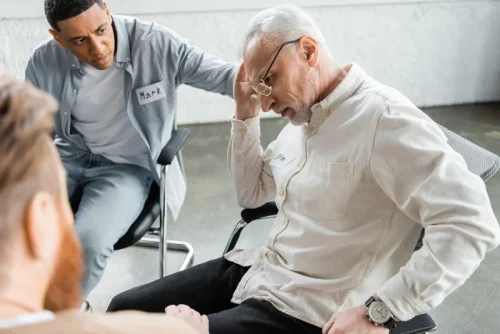
If you are alcohol dependent it is vital to get the right support to do this as giving up without the right medical oversight can lead to dangerous withdrawal symptoms. Withdrawal from cocaine can be challenging, with symptoms lasting from a few days to weeks. Some people experience fatigue, sleep problems, and strong cravings, making it tough to quit. Understanding these symptoms can prepare you for what’s ahead and help you manage them better. Cocaine use has significant societal implications, impacting public health, economic stability, and community safety. Cocaine contributes to the second-highest criminal justice costs of any substance in Canada after alcohol.

Peer Support and Narcotics Anonymous

Through personalized treatment plans, individuals learn coping strategies, gain insights into the triggers of their addiction, and develop new, healthier habits. Behavioral health counseling is a significant component of crack cocaine addiction treatment due to the drug’s psychological and physical impacts. Crack addiction treatment incorporates a range of Oxford House therapeutic techniques, including individual psychotherapy, support groups, and cognitive behavioral therapy (CBT). These approaches aim to address the complex nature of addiction and support individuals in their recovery journey.
Get Professional Support
It requires patience, perseverance, and a willingness to seek and accept help. Each step you take towards quitting cocaine safely is a step closer to regaining control of your life. Friends and family members who understand your decision to get clean can offer you the emotional support and encouragement needed during tough times. Whether it’s accompanying you to treatment sessions or simply being there to talk, involving your loved ones can make a significant difference. When cocaine addiction treatment selecting treatment for cocaine addiction, look for programs that offer a comprehensive approach. Evidence-based therapies like cognitive-behavioral therapy (CBT) and motivational interviewing are highly effective in addressing the root causes of addiction.
- This structured and safe environment is critical for successful long-term treatment transitions.
- Support groups offer a safe space to share experiences, gain insights, and receive support from others who have faced similar challenges.
- This proactive approach to sobriety helps in building resilience against relapse.
- In CBT, individuals learn to recognize the triggers that lead to substance use and develop coping strategies to manage these triggers effectively.
Outpatient Treatment Programs
- Exercise has been shown to enhance the brain’s ability to adapt and change, supporting the healing process and the development of new, healthier habits.
- These practices reduce stress, enhance self-awareness, and promote the growth of new neural connections.
- Negative reinforcement also plays a role, as individuals may use cocaine to alleviate withdrawal symptoms or emotional distress.
- It’s about more than just abstaining from drug use; it’s about building a new, fulfilling life in sobriety.
- These resources provide you with a structured approach to addiction, helping you understand the root of your dependency while teaching you coping mechanisms for cravings and potential relapses.
You do not have to be taking cocaine, or crack cocaine, every day to be addicted to it. A sign of addiction is that you’ve tried to cut down or stop but are unable to. This is a very important step in overcoming addiction because it helps you to identify one of the main obstacles and deal with it. Taking up exercise, reading, gardening, hillwalking or any other healthy and engaging hobby or activity will help you to focus your time and energy away from using drugs. It can also help fill the void in your time where you might otherwise be using drugs.

The Importance of Supervised Detoxification
Professional evaluation is crucial for an accurate diagnosis, which considers the severity of addiction, co-occurring mental health issues, and individual circumstances. Treatment typically involves a combination of medical intervention, therapy, and support systems. Overcoming cocaine addiction is a journey that requires dedication, perseverance, and a strong support network. While the road to recovery may be challenging, there are practical tips that can help individuals on their path to sobriety. In addition to the physiological changes in the brain, cocaine addiction is also influenced by psychological factors.
- For instance, the brain’s reward system, which includes areas like the basal ganglia and the prefrontal cortex, is significantly altered in addiction.
- Cognitive-behavioral therapy (CBT) helps individuals identify and change negative thought patterns and behaviors.
- To increase the chances of long-term recovery, individuals should implement strategies for preventing relapse and be aware of the potential long-term effects of medication-assisted recovery.
- Additionally, co-occurring mental health disorders or addiction to multiple substances can complicate the withdrawal process and pose additional challenges.
- Medication-assisted treatment, combined with therapy, provides individuals with the necessary tools to address the physical, psychological, and behavioral aspects of addiction.
Can You Overcome Cocaine Addiction Without Drug Rehab?
Exercise is an excellent way to release endorphins, reduce stress, and improve overall well-being. Engaging in regular physical activity not only helps to distract from cravings but also promotes a healthier lifestyle. Whether it’s going for a run, practicing yoga, or joining a sports team, finding an exercise routine that suits individual preferences can be a powerful tool in recovery. It is important to recognize that cocaine addiction is not solely a result of physical dependence on the drug. Psychological factors play a significant role in the development and maintenance of addiction.

About
- Web |
- More Posts(31559)
